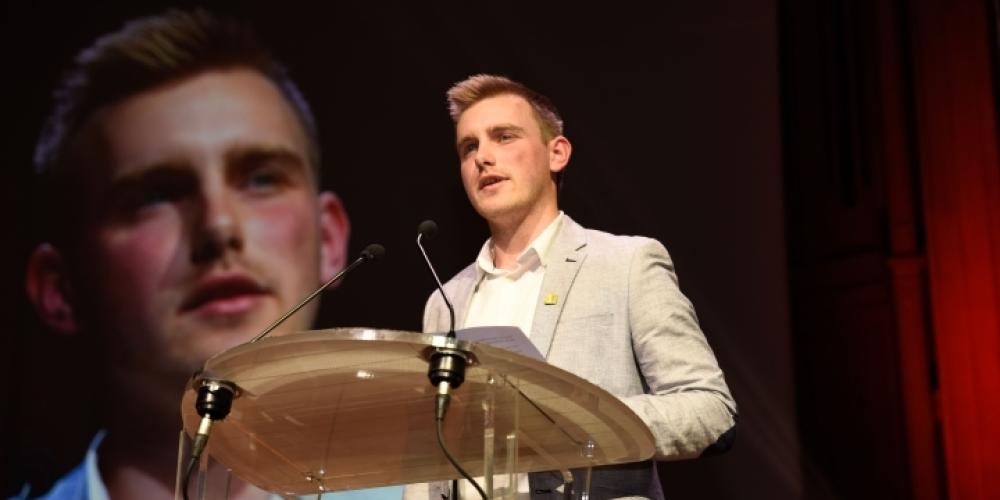
“Today”, Arlind Cara, an Albanian masters student and member of the International Student Platform, started his speech, “I guess, we are writing a small part of history.” Indeed the programme and speeches at the opening of the academic year were exceptionally international of nature: The chair of the Student Council, Jarne Verelst, kicked off by stating that “being able to cope with differences in our multicultural society is an important skill, one unfortunately not held by everyone, but one that is essential for any reasonably headstrong VUB-student”. Apart from welcoming international students, “more local students should grasp the opportunities to study abroad to develop a broader worldview”.
Open invite to Flemish students
Arlind, as member of the International Student Platform (ISP), in turn invited local students to get in touch and benefit from the international students on campus: “To all the Flemish students I can say that there are plenty of occasions to get to know your international fellow students, and we are looking forward to meeting you!”
In his speech, he points to an earlier and more inclusive graduation ceremony as one of the concrete opportunities to improve this integration. “Currently the graduation ceremony takes place up to six months after the last exams” Koen Glotzbach, chair of the ISP, explains. “This means that many international students, especially scholarship-holders, cannot attend this important and festive closure of their academic careers because they have left the country. This is one of the areas where we, together with our new members, want to improve the experience of the international students”.
Benefiting from an international outlook
The student's plea for an international outlook is strongly supported by new director Caroline Pauwels. In her maiden speech she set out a view of a multi-lingual VUB, one that not merely offers English programmes, but benefits from the many cultural backgrounds that they attract: “Debates are stronger, insights sharper, with 50 nationalities, than with one, I know as professor for our international masters.”
The VUB can and should use the 'European, international and cosmopolitan' opportunities that Brussels offers, to better deal with changes in today's society, Pauwels argued. In this light, Assita Kanko's story on her youth and her developing into a respected Brussels politician was a touching contribution to the programme. All in all, the opening of the academic year proved to be a good taster of the new, more international, approach.